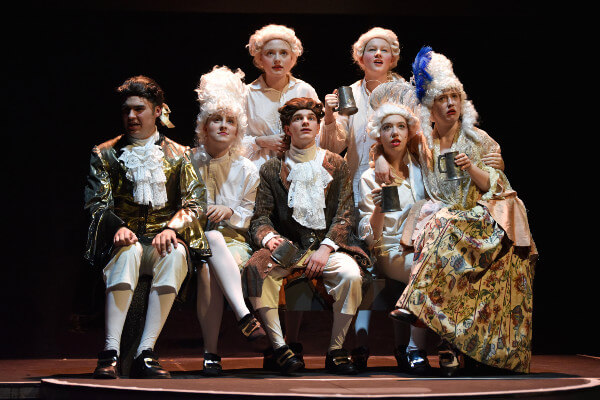The Benefits of Studying Performing Arts

Children that have access to performing arts classes have the opportunity to become more socially confident and happier, thus having a positive effect on their mental health, findings from a new survey released on World Theatre Day shows.
The poll from Tring Park School for the Performing Arts, which boasts alumni such as Hollywood stars Lily James and Daisy Ridley, reveals that 86 per cent of parents believe their child is happier since studying performing arts, with a further 83 per cent admitting they now appear more confident.
With the NHS witnessing a 39 per cent rise in young people seeking mental health treatment in the past year, there has never been a better time to prioritise the well-being of the next generation. Performing arts is one way to promote attributes such as emotional resilience and self-belief, which in turn has a positive effect on combating anxiety, depression and stress.
Nearly three quarters of parents (74 per cent) have also noticed an improvement in their child’s social skills, with performing arts study offering the perfect place for like-minded young people to get together and thrive, following a number of years of social isolation caused by the pandemic.
Commenting on the findings, Stefan Anderson, Principal at Tring Park School for the Performing Arts says: ‘It is fantastic to see that parents are witnessing first-hand the benefits and enrichment that performing arts can bring to their child’s lives. The performing arts give young people the opportunity to learn a wide range of life lessons and can be a great confidence booster. It helps promote self-esteem and gives children the opportunity to widen their social circle, mixing with other young people from a variety of different backgrounds, all with similar interests. Those social connections made in childhood are vital for an individual’s wellbeing right through into adulthood.’
Student, Arabella Pahl, age 19, explained how performing arts study has positively supported the tricky transition through her teenage years: ‘Being on the stage has always been a way for me to escape. Having something to put all my energy into during rehearsals or training has helped me deal with my emotions. It is inevitable for teenagers to go through struggles during these years, but I truly believe being able to come to a place to train and be myself whilst surrounded by like-minded students has helped me navigate the ups and downs of my teenage years.
‘I am at my happiest when I am able to perform and bring a smile to an audience’s face, and I would not have the confidence or self-belief I have today without the performing arts,’ Pahl concludes.
Further findings revealed that over three quarters of the parents polled (80 per cent), believe that a focus on performing arts will actually have a positive impact on their child’s academic learning. In fact, recent studies have shown that the performing arts can support a young person’s academic learning by further developing cognitive capacities. The arts encourage self-expression and creativity and can build a sense of individual identity, all of which spills over into academic progress.
Carla Pahl, emotional well-being hypnotherapist and mother to Arabella, explains: ‘As a mother of four and within my profession, I work with many teens and young adults. One identifiable need with mental well-being is the ability for an individual to express their emotions, release physical tension and feel included and seen – erasing invisibility.’
Pahl continues: ‘Our daughter has been studying performing arts for many years, particularly enjoying being part of a group that celebrates expression and the joy of performance in many and varied disciplines of art. The performing arts has enabled Arabella to dance into the next chapter of her life with friends, confidence, and self-belief.’
The survey polled parents of children aged 7 to 19 that study a variety of performing arts subjects including music, acting, musical theatre and dance.

